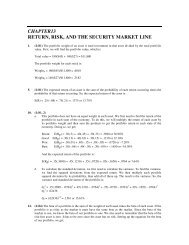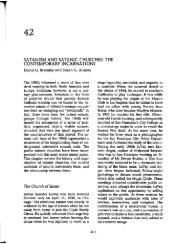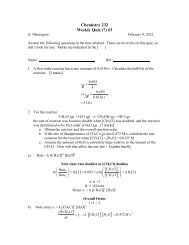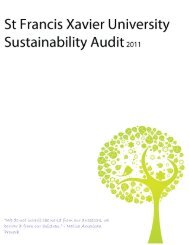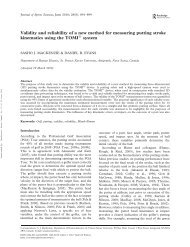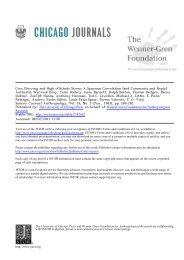ÉTIENNE GILSON AND THE ACTUS ESSENDI
ÉTIENNE GILSON AND THE ACTUS ESSENDI
ÉTIENNE GILSON AND THE ACTUS ESSENDI
Create successful ePaper yourself
Turn your PDF publications into a flip-book with our unique Google optimized e-Paper software.
Dewan: Gilson and the actus essendi<br />
point in adding to the affirmation of its reality that, over and above being supremely real,<br />
it exists. 29<br />
Here, Gilson is presenting to us the minds of thinkers who have not gone as far<br />
as Thomas Aquinas. God’s essence is “the perfection of entity itself” and<br />
“existence” JUST posits it in actual reality. Existence seems to add no new<br />
important target of metaphysical analysis.<br />
At this point Gilson summarizes the three arguments of 1.3.4. And upon them<br />
he comments:<br />
Dialectically speaking, the justification of the conclusion is faultless: “God is His own<br />
being, and not only His own essence.” There must therefore be some reason why it has<br />
failed to win universal approval, and the reason is that all such dialectical demonstrations<br />
presuppose the notion of being proper to Saint Thomas Aquinas. If the ultimate meaning<br />
of the word “being” is the act of being, the esse or actus essendi in virtue of which alone<br />
things can be called “beings,” then all the arguments of Thomas Aquinas are convincing<br />
and all lead to a necessary conclusion. To those who perceive that to be is, in every thing,<br />
the ultimate act that causes it to be a being, the demonstration becomes crystal-clear. One<br />
should rather say that there is nothing left to demonstrate. He whose true name is HE<br />
WHO IS necessarily is, so to speak, 30 by essence, the very act of being itself in its<br />
absolute purity. God does not own it, He is it. 31<br />
Here one cannot but agree that everything depends on one’s understanding of the<br />
notions and their implications. This is true of any demonstration in any matter.<br />
I would hardly agree, however, that there is nothing left of the demonstration. It<br />
is an argument which presupposes that we know what is meant by the esse of<br />
things, and even presupposes that we find in some things that their essence is<br />
other than their esse. 32 Thus, for example, the second argument in the body of ST<br />
1.3.4 has as a key premise:<br />
… it is necessary that esse itself be compared to the essence which is other than it as act<br />
to potency. 33<br />
29<br />
ECP, p. 118.<br />
30<br />
My italics on this expression: Gilson regularly seems to wish to downplay “per<br />
essentiam,” “by essence,” said of God.<br />
31<br />
ECP, p. 119.<br />
32<br />
Cf. John M.Quinn, O.S.A., The Thomism of Etienne Gilson: A Critical Study, Villanova,<br />
PA: Villanova University Press, 1971. I agree entirely with Quinn that Gilson’s approach<br />
to the real distinction between esse and essence in caused things is wrong. As Quinn says,<br />
if the identity of esse and essence in God is not based on the already known real distinction<br />
in other things, then that doctrine of identity loses all its force. [80-81] But Quinn thinks<br />
[83] that the reversal of order by Gilson, attempting to start with God, is what “accounts<br />
for Gilson’s hesitancy a about whether the real distinction is demonstrable.” I believe that<br />
I offer a better reason, viz. Gilson’s failure to identify Thomas’s esse with the actual<br />
existence of the essence, what Gilson calls the “state” of existence.<br />
33<br />
The Latin runs:<br />
…Oportet … quod ipsum esse comparetur ad essentiam quae est aliud ab ipso sicut<br />
actus ad potentiam. [Ottawa ed. 19a1012]<br />
81



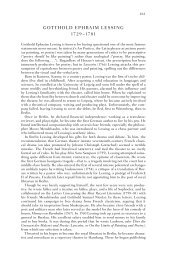
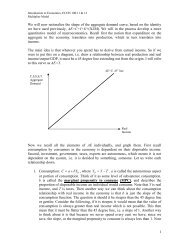
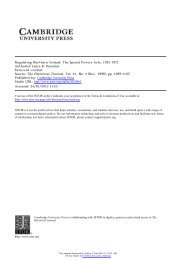
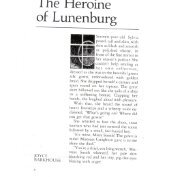
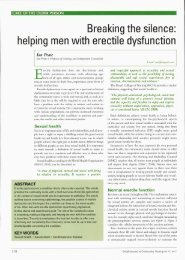
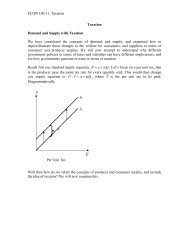
![The Rink - Cyril Dabydeen[1].pdf](https://img.yumpu.com/21946808/1/155x260/the-rink-cyril-dabydeen1pdf.jpg?quality=85)

